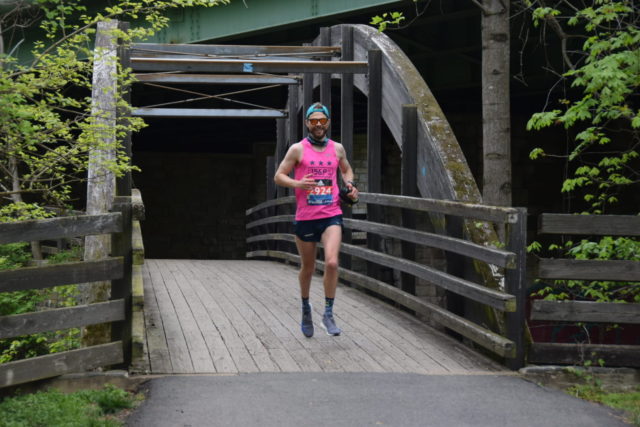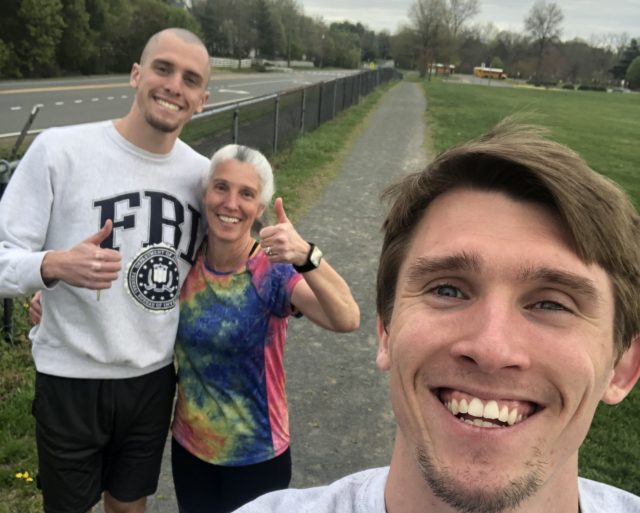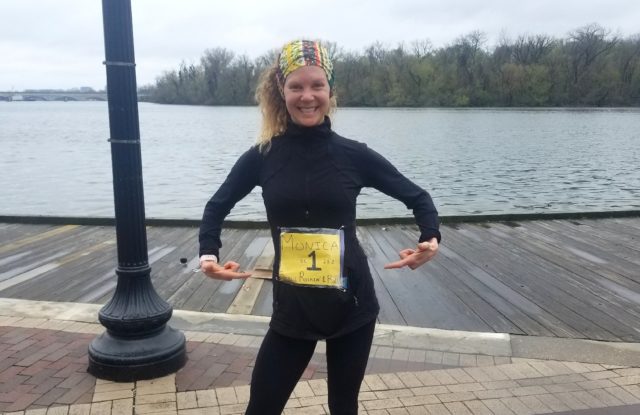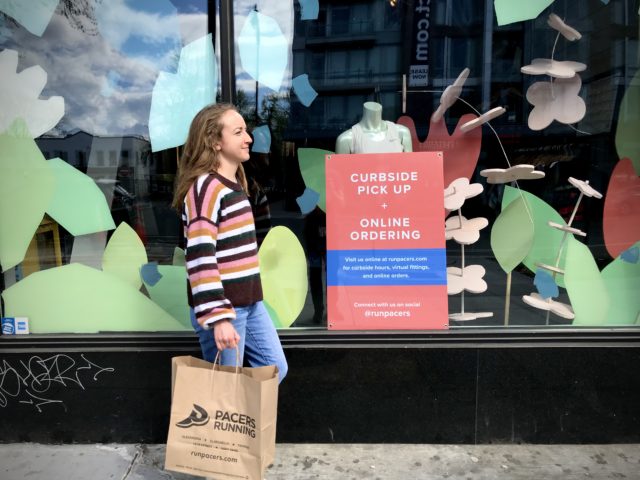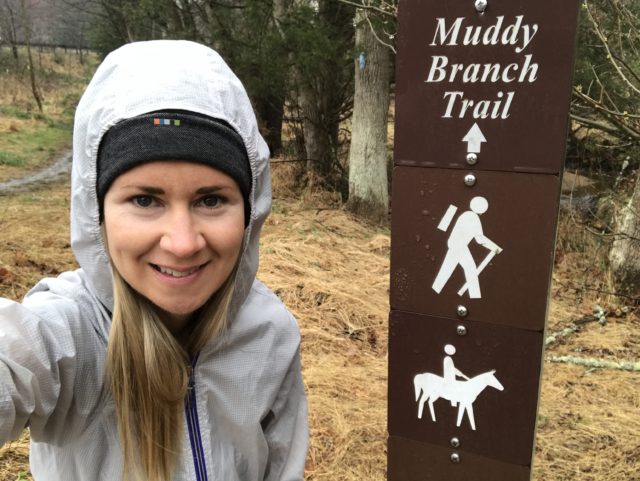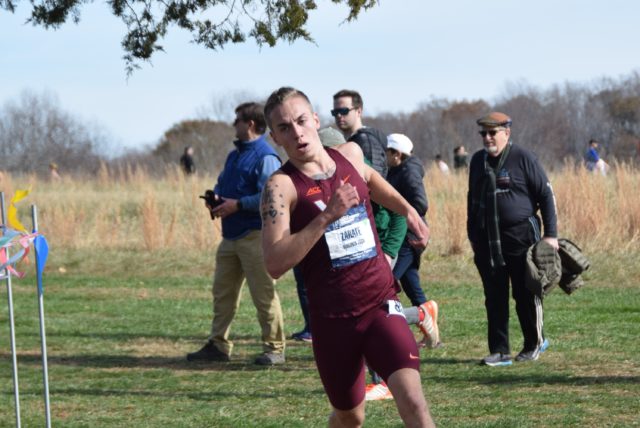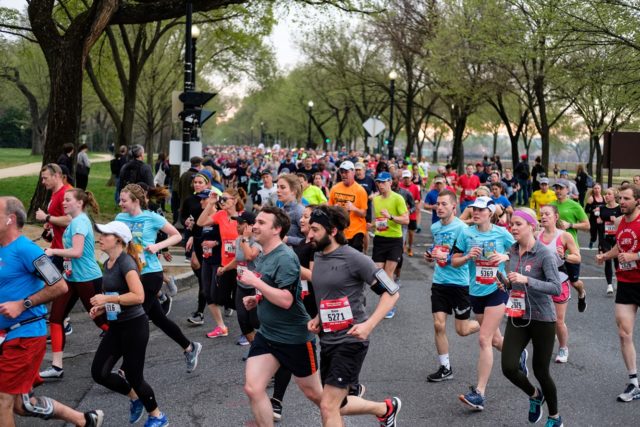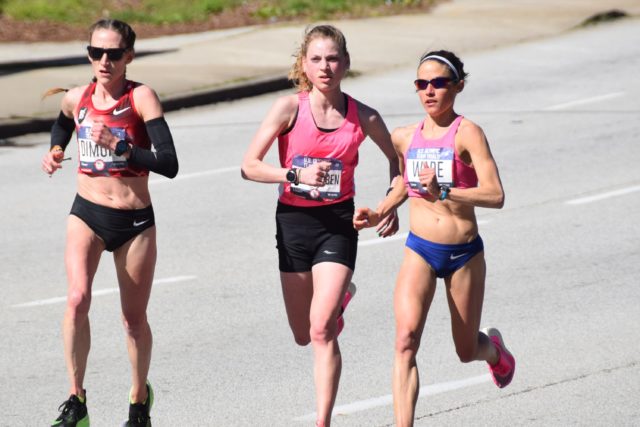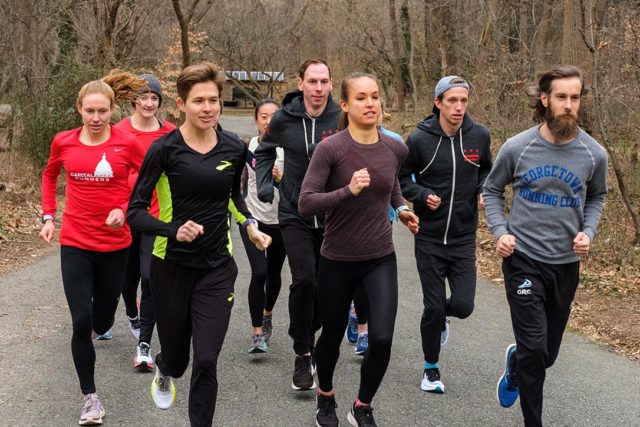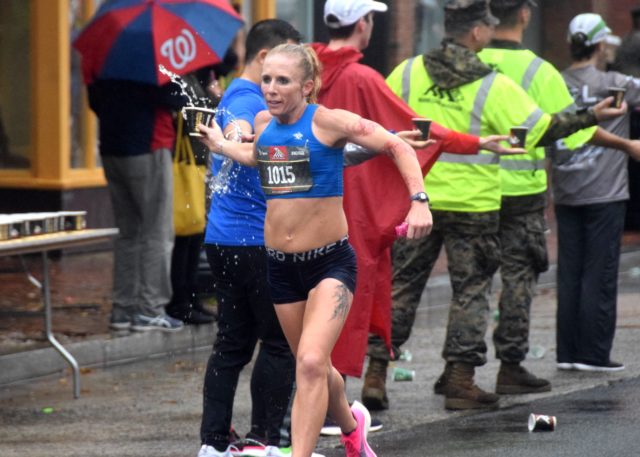When Kerry O’Brien woke up on Friday, March 13, she hadn’t expected to have an entire day free, because she’d been planning to go in to school to teach her 6th grade special education class. When she got the memo that her school would be closed for at least the next several weeks due to COVID-19, she seized the opportunity to tackle her bucket list of local trails. O’Brien set a goal to run a new trail every weekday she is out of school, which Governor Northam just announced will now be until the end of the school year in June.
O’Brien has an inspirational notebook where she keeps lists of places she wants to travel, books she wants to read, and of course, trails she’d like to run. When she first moved to the DC area from upstate New York in 2012, she craved community, so she joined a Meet-Up group that met every Saturday morning at Teddy Roosevelt Island for long runs.


